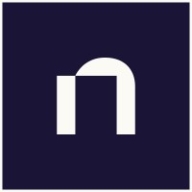

Netwrix Endpoint Protector and Varonis Platform compete in the data protection and governance category. Netwrix Endpoint Protector appears to have the upper hand in terms of flexibility and cost-effectiveness, while Varonis Platform offers robust data monitoring and classification capabilities.
Features:Netwrix Endpoint Protector offers Device Control, Content-Aware Protection, and Enforced Encryption for strong data loss prevention measures. Varonis Platform focuses on data monitoring and classification, threat management, and access governance, helping organizations manage data access more effectively.
Room for Improvement:Netwrix Endpoint Protector users seek improved Network DLP and SaaS DLP features, enhanced policy granularity, and better performance in Linux environments. Varonis Platform users request a more efficient calculation engine for large datasets, improved integration with third-party solutions, and easier deployment processes.
Ease of Deployment and Customer Service:Netwrix Endpoint Protector supports Windows, macOS, and Linux platforms, offering deployment flexibility. However, users report challenges with technical support responsiveness. Varonis Platform is praised for reliable technical support and problem-solving effectiveness, while users suggest improvements in policy management.
Pricing and ROI:Netwrix Endpoint Protector is considered budget-friendly with good ROI by preventing costly data breaches, despite concerns about rising costs. Varonis Platform is seen as expensive but suited for large enterprises due to its comprehensive features and strong ROI in protection and compliance.
I have seen a return on investment mainly through time savings and improved security for sensitive data, making it a valuable investment.
I definitely say that we have had time savings by using the DataVantage module and also time savings using the AD module when we are dealing with different incidents.
I never needed to contact the vendor for technical support because we faced very few issues.
I would rate the technical support for Netwrix Endpoint Protector as a nine because we have trained engineers, and I am also trained.
I would rate the customer support for Varonis Platform at nine out of ten.
They respond quickly to anything we need, which is not common among platforms.
The customer support is above par; it is what I think other organizations should look at to be comparable to.
Everything starts from the endpoint, and we maintain the Endpoint DLP in many cases while working alongside existing DLP systems.
This solution is scalable because prior to onboarding it, we took references from the vendor, the implementation vendor, and the CoSoSys team.
Varonis Platform is highly rated for scalability.
Varonis's scalability as eight to eight point five out of ten.
The product has been around for over 15 years now and is very stable because I started using them from version three.
Stability-wise, the solution is stable; we experienced no downtimes during our two years of usage.
Netwrix is known as the best DLP for Apple Macintosh computers, which is noteworthy.
Not all the policies applied to the Linux clients were as effective as those for Mac and Windows.
Varonis requires more access permissions for its core functions compared to competitors, which can be a concern for companies about data safety.
A phishing email module would be great; I look forward to when that comes out.
Enhancing tighter integration with third-party solutions, such as SIEM or SOAR platforms, for smoother incident response workflows.
Varonis is known for its high licensing cost, which can include the cost of multiple servers required for its operations, called collectors.
My experience with pricing, setup costs, and licensing for Varonis Platform has been good, with competitive costs.
Assuming if there's a breach, we will be able to know exactly where the breach has occurred and what has occurred, and they are quite granular in how they report their information, including their logs.
In the dashboard, one system was utilizing two licenses for a single system.
Netwrix Endpoint Protector works on Linux and macOS to block USB ports, control internet access, and manage other peripheral ports.
Varonis is excellent for scanning unstructured data sources like file shares, OneDrive, SharePoint, Azure Blob Storage, and S3s.
Varonis Platform is agent-based and AI-driven for detection and response, identifying data based on its content and context.
Varonis Platform has a big variety of integrations, and they continuously work on new updates and integrations, such as ChatGPT Enterprise and Zoom.
| Product | Market Share (%) |
|---|---|
| Varonis Platform | 6.1% |
| Netwrix Endpoint Protector | 1.9% |
| Other | 92.0% |


| Company Size | Count |
|---|---|
| Small Business | 15 |
| Midsize Enterprise | 9 |
| Large Enterprise | 6 |
| Company Size | Count |
|---|---|
| Small Business | 3 |
| Midsize Enterprise | 2 |
| Large Enterprise | 12 |
Content Aware Protection
Scanning data in motion
Monitor, control and block file transfers. Detailed control through both content and context inspection.
Device Control
USB & peripheral port control
Lockdown, monitor and manage devices. Granular control based on Vendor ID, Product ID, Serial Number and more.
Enforced Encryption
Automatic USB encryption
Encrypt, manage and secure USB storage devices by safeguarding data in transit. Password-based, easy to use and very efficient.
eDiscovery
Scanning data at rest
Discover, encrypt and delete sensitive data. Detailed content and context inspection through manual or automatic scans
Varonis Platform enhances data security and governance with advanced analytics, identifying unusual access patterns and sensitive areas. Its centralized interface manages permissions across systems, offering essential capabilities for alerting and reporting.
Varonis Platform provides continuous data protection and monitoring by identifying and alerting on unauthorized data access. It offers comprehensive insights into file access and user activities, supporting data classification and simplifying compliance with tracking and monitoring capabilities. Integration with storage systems enables users to manage permissions and access effectively. Room for improvement includes cloud integration and simplifying its interface and calculation engine for ease of use. Challenges include on-premises dependency, licensing costs, and a need for enhanced DLP capabilities.
What are the primary features of Varonis Platform?
What benefits and ROI should users expect?
In finance, Varonis aids in safeguarding sensitive financial data, while in healthcare, it secures patient records. Legal industries utilize it for protecting client information, and retail sectors manage sensitive customer data. These industries benefit from Varonis' ability to prevent unauthorized access and streamline compliance.
We monitor all Data Loss Prevention (DLP) reviews to prevent fraudulent reviews and keep review quality high. We do not post reviews by company employees or direct competitors. We validate each review for authenticity via cross-reference with LinkedIn, and personal follow-up with the reviewer when necessary.